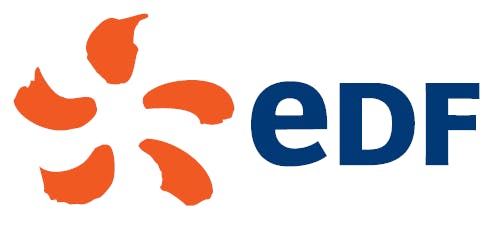26% of the EDF group’s workforce is currently female (30% at EDF), which places it in the top half of the main French industrial groups. Although the increase in this rate has slowed slightly in recent years (impact of the “15 years, 3 children” measure, reduction in the number of new hires), it is still increasing at double the average rate of French companies, for all sectors combined.
EDF strives to guarantee equal access to professional and promotional training, through, for example, a scheme to cover additional childcare costs for parents undergoing training, with a view to securing comparable career paths for women and men.
Details for women executives
The percentage of women in the Group’s management has doubled since 2002, reaching 29% by 2022.
| 2020 | 2021 | 2022 | |
|---|---|---|---|
| Male managers | Male managers 2020 38,084 |
Male managers 2021 39,345 |
Male managers 2022 41,061 |
| Female managers | Female managers 2020 15,401 |
Female managers 2021 15,986 |
Female managers 2022 16,803 |
| Women/managers (in %) | Women/managers (in %)2020 28.7 |
Women/managers (in %)2021 28.9 |
Women/managers (in %)2022 29 |
| Female managers/female employees (in %) | Female managers/female employees (in %)2020 36.1 |
Female managers/female employees (in %)2021 37 |
Female managers/female employees (in %)2022 37.9 |
Details for women on the Management Committees: a key performance indicator for the Group
GROUP KEY PERFORMANCE INDICATOR
The key performance indicator used by the Group for “Equality, diversity, inclusion” is the percentage of women among the Management Committees of Group entities. Women formed 30.8% of Management Committee members in 2022, an increase of 1 point compared with the previous year.
Over 10 years, the percentage of women in the Group’s Management Committees has increased by almost 50% (it was slightly less than 20% at the end of 2011). It also reflects the dynamic observed, more generally, in the Company’s managerial body becoming more female.
Article 14 of act No. 2021-1774 of 24 December 2021 (the “Rixain Act”), aimed at accelerating economic and professional equality, creates an obligation of balanced representation of men and women among the senior executives and the members of management bodies in large companies, also creating an obligation of transparency in this respect (1).
The percentage of women executives at EDF was 24.1% at end 2022.
Succession plans for senior management positions are always mixed- gender. In addition, schemes such as TALENTS 2.0 help identify a more diverse range of talent, at all stages in a career.
Gender balance index: percentage of women in the Management Committees of the Group’s entities (in %)

This graph shows the gender balance index: percentage of women in the Management Committees of the Group’s entities (in %).
2020 : 28.7
2021 : 29.8
2022 : 30.8
Target 2026 : 33.0
Gender mix of the Board of Directors
The proportion of women on the Board of Directors is in compliance with the statutory threshold. The Nominations, Remuneration, and Governance Committee and the Corporate Social Responsibility Committee are chaired by women (see section 4.2.1 “Members of the Board of Directors”).
Professional gender equality index *
| Published in 2021 based on 2020 | Published in 2022 based on 2021 | |
|---|---|---|
| Professional gender equality index (EDF) | Professional gender equality index (EDF) Published in 2021 based on 2020 95/100 |
Professional gender equality index (EDF) Published in 2022 based on 2021 90/100 |
* Index published before 1 March reference year+1 in respect of reference year.
EDF points for the four first indicators relating to disparities in remuneration and to equality of treatment between women and men in the Company, but had allowed 5 points since there was one woman the fewer among the 10 highest remunerations in the Company.
The Group has succeeded in virtually eliminating the pay gap between men and women in terms of primary pay, with our progress reflected in equality indexes of
between 75 and 95/100. In-depth work were conducted on equal pay for women and men, in partnership with the Institut national des études démographiques (National Institute for Demographic Studies or INED), to identify the sources of the gender pay gap, with a particular focus on the impact of additional pay components. Analyses have been carried out at the Division level, and social dialogue on the subject is ongoing (see section 3.5.3 “Social dialogue”).
(1) For EDF, this first publication pursuant to the Rixain Act was released during 2022 on the basis of the data at 31/12/2021: the percentage of women senior executives of EDF was 23.95%, and thepercentage of women in the management body of EDF (the Executive Committee) was 15.4% at that date.
